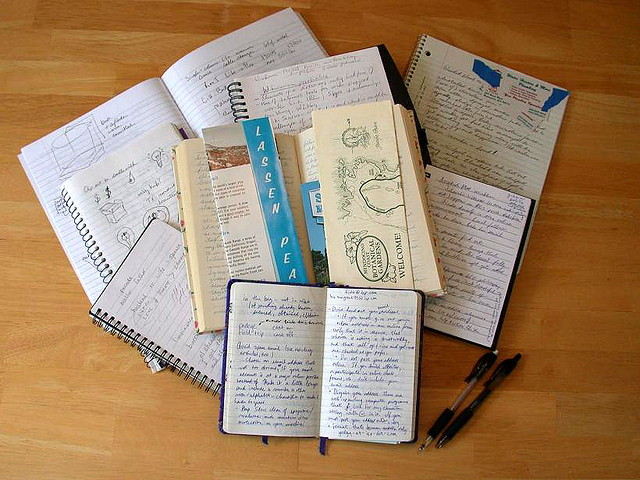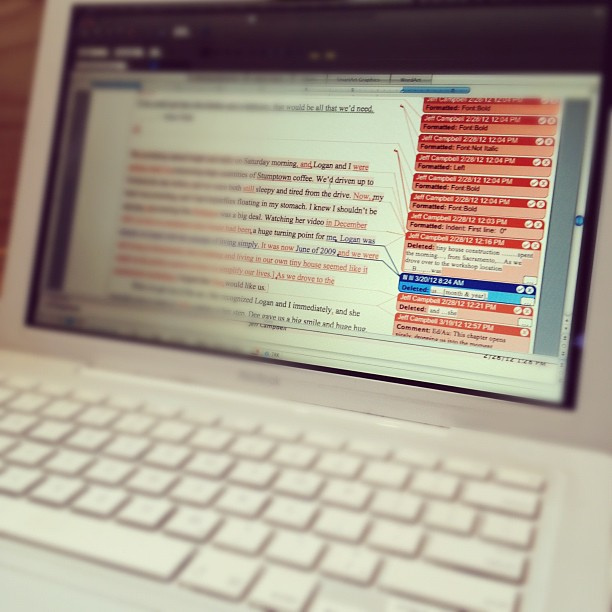One of the fairly common questions I get in real life from my friends (who are not English majors) is, “How to write better?” When I was asked this question, I was a bit dumbstruck because it didn’t occur to me that someone could need help with writing — I usually hang around people who work well with words, and it really didn’t occur to me that writing was my “secret superpower” — it just came naturally to me.
Okay, I also write something every day, too. It has become a habit.
But I realise that writing doesn’t come naturally to some people — perhaps the problem has got to do with language, or maybe you speak better than you write. Whatever it is, here is how to go about it.
1. Read Authors You Like, And Take Note What You Like And Don’t Like About Them

The first thing you want to do is read. Read whatever you are interested in, and don’t let people get you down with their judging. If you like reading self-help, read all of the self-help. If you like YA, read YA, even if you are 40 years old. There is no limit.
If you’re learning English, don’t go for Shakespeare right away — pick a book that you are comfortable with at your level, but where you have some room to learn stuff. So if you are reading children’s books for 10 year olds, maybe you can go for something slightly more advanced.
But this doesn’t mean you read only one genre–if you like fiction, switch it up with some non-fiction. If you like realist fiction, maybe try fantasy. You get the idea. There is always something to learn from every book you read, no matter what. Just make sure you enjoy what you are reading so it doesn’t seem like a chore.
2. Make A List Of What You Like And What You Don’t Like

It’s not just reading, but also taking down notes when you read. If you’re learning the language, get a physical dictionary and look up the meanings of words manually and write them down. Don’t use a computer because you will most likely get distracted Actually, this also applies to all readers — I still encounter words that I don’t know, and it’s fun to take note of them.
If you’re learning to write fiction, create different categories in various sections of the notebook so you can compartmentalise what you like. There can be pages of good metaphors, witty bits of dialogue, strong descriptions, or nice foreshadowing. It’s up to you to dertemine your focus.
The same thing goes for non-fiction — if an explanation is particularly good, an argument well written, or an introductory paragraph that particularly punchy, write the entire sentence/phrase down and look at it later. You have to copy the words down in your own notebook, and make sure you refer to them later when you are done.
It’s also important to make notes of what you don’t like — writing criticism down, like “The explanation was too difficult to understand because it was full of jargon,” or “having a gay best friend is too cliché,” also helps you discern what is strong writing and what isn’t. Write this down at the back of the notebook as well.
3. Study Grammar, Sentence Structure, And Punctuation
 This sounds like the boring bit that everyone wants to avoid, but trust me, it helps. Reading already aids you as you’ll be more familiar with how the language works, but it’s good to find fun websites like The Yuniversity that make learning these rules fun. Go out and look for grammar guides, sentence structures, and how to use punctuation properly. If rote learning is your thing, then go ahead and by books that will drill these grammar rules in. Or, you could make grammar exercises fun by changing the nouns in sentences.
This sounds like the boring bit that everyone wants to avoid, but trust me, it helps. Reading already aids you as you’ll be more familiar with how the language works, but it’s good to find fun websites like The Yuniversity that make learning these rules fun. Go out and look for grammar guides, sentence structures, and how to use punctuation properly. If rote learning is your thing, then go ahead and by books that will drill these grammar rules in. Or, you could make grammar exercises fun by changing the nouns in sentences.
For example, instead of writing, “Neither Jim nor Jane __ at the concert,” you may change the sentence to “Neither Jim nor Jane __ at the alien’s house” just to keep yourself entertained.
There are also websites that have grammar exercises to help you, so you may do those, too.
4. Practise

People like me write every day, but that’s because I made it a habit when I was younger and it stuck. Make time to write something every day — it could be an explanation, an argument, a description of a character — choose what you want to focus on. If you would like to focus on writing metaphors, dialogue, and character building, then focus on one aspect once every three days. You may choose to write on a computer, but I recommend doing it by hand first.
Don’t worry about planning an essay, or a story, or something that is a longer body of work — focus on describing one thing properly, or explaining one argument clearly. Work on the small stuff first, and then tackle everything else later.
Write. Don’t worry if it sounds bad, or silly, or stupid — criticism comes later, along with the editing. Impose a word limit on yourself, and make sure you reach it. When you’re done, read it three times to see if you can make sense of what you have written, and then, put it away.
You may also copy large chunks and paragraphs of a book to see what it’s like to write in this style, or to explain things in some way — this may give you insight to how the writer did it. I mean, Hunter S. Thompson copied the entire novel, The Great Gatsby, because he wanted to know what it was like to write his favourite book — that’s extreme, but it worked for him.
Warning: Do not submit copied work as your own. It is plagiarism and you will burn in hell for all eternity.
5. Put It Away

After you’re done, put it away. This is important as you need the time to distance yourself away from your work. I usually put my stuff away for a week, but I have written stories and stashed them away for months and then finally getting round to looking at them because I needed to look at my story with fresh eyes.
6. Get Feedback

After you find that there isn’t anything more you can do to edit it, give it to this trusted person. S/he will help you out and tell you what works, and what doesn’t.
You have to be careful at this bit because you’ll need to find someone who is trustworthy and won’t attack you personally, or mock your work. This person has to respect you as much as you respect them — if not you’re not going to take his/her feedback seriously, and s/he won’t either. However, when someone criticises your work, it’s also important to remember that it’s not a personal attack, and that the person is criticising it because s/he is helping you improve.
The worst kind of critique is to have someone say that nothing is wrong and that everything is fine — if someone has said that, to you, then s/he probably isn’t a good choice to help you with your writing in the first place.
Remember that not all advice should be taken word for word, and you have the discretion to take some advice to heart, or to discard what you think doesn’t work for you. Evaluate everything and bear in mind when you write your next piece.
That’s it! Getting better at writing is this long and may be difficult, but with enough practise, it’s well worth it.
